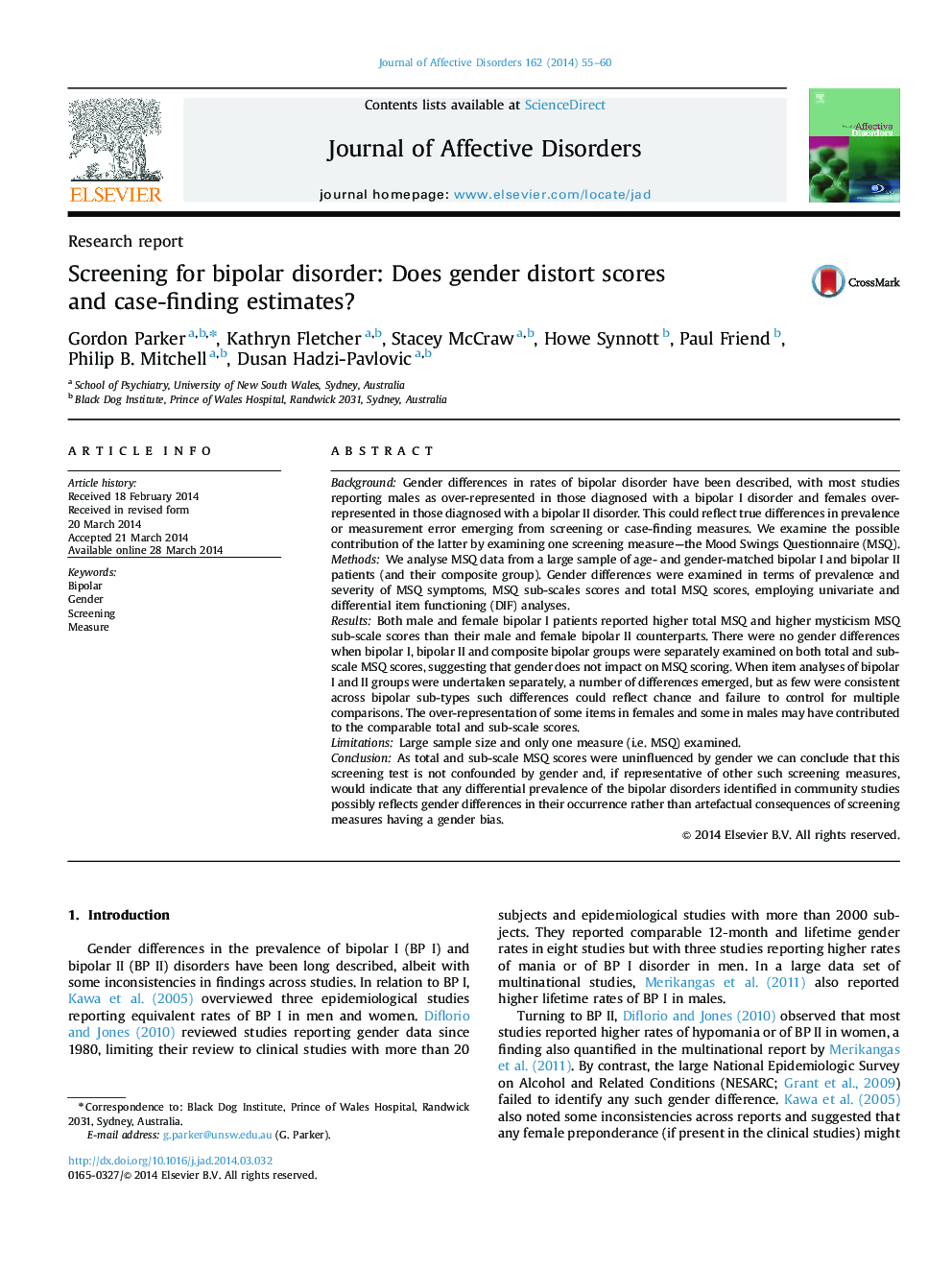| کد مقاله | کد نشریه | سال انتشار | مقاله انگلیسی | نسخه تمام متن |
|---|---|---|---|---|
| 6232972 | 1608163 | 2014 | 6 صفحه PDF | دانلود رایگان |
BackgroundGender differences in rates of bipolar disorder have been described, with most studies reporting males as over-represented in those diagnosed with a bipolar I disorder and females over-represented in those diagnosed with a bipolar II disorder. This could reflect true differences in prevalence or measurement error emerging from screening or case-finding measures. We examine the possible contribution of the latter by examining one screening measure-the Mood Swings Questionnaire (MSQ).MethodsWe analyse MSQ data from a large sample of age- and gender-matched bipolar I and bipolar II patients (and their composite group). Gender differences were examined in terms of prevalence and severity of MSQ symptoms, MSQ sub-scales scores and total MSQ scores, employing univariate and differential item functioning (DIF) analyses.ResultsBoth male and female bipolar I patients reported higher total MSQ and higher mysticism MSQ sub-scale scores than their male and female bipolar II counterparts. There were no gender differences when bipolar I, bipolar II and composite bipolar groups were separately examined on both total and sub-scale MSQ scores, suggesting that gender does not impact on MSQ scoring. When item analyses of bipolar I and II groups were undertaken separately, a number of differences emerged, but as few were consistent across bipolar sub-types such differences could reflect chance and failure to control for multiple comparisons. The over-representation of some items in females and some in males may have contributed to the comparable total and sub-scale scores.LimitationsLarge sample size and only one measure (i.e. MSQ) examined.ConclusionAs total and sub-scale MSQ scores were uninfluenced by gender we can conclude that this screening test is not confounded by gender and, if representative of other such screening measures, would indicate that any differential prevalence of the bipolar disorders identified in community studies possibly reflects gender differences in their occurrence rather than artefactual consequences of screening measures having a gender bias.
Journal: Journal of Affective Disorders - Volume 162, 20 June 2014, Pages 55-60
